Why Authority Matters in AI Search
AI systems don’t just find information—they evaluate source credibility and preferentially cite authoritative content. When an AI assistant recommends your business or cites your content, it’s essentially vouching for your expertise. That’s why building and demonstrating authority is critical for GEO success.
How AI Evaluates Authority
AI platforms assess authority through multiple signals:
E-E-A-T Factors:
– **Experience:** Demonstrated first-hand knowledge and practical application
– **Expertise:** Professional credentials, qualifications, and specialized knowledge
– **Authoritativeness:** Industry recognition, citations by others, reputation
– **Trustworthiness:** Accuracy, transparency, ethical practices, security
External Validation:
– Citations by other authoritative sources
– Media mentions and press coverage
– Awards, certifications, and recognitions
– Speaking engagements and thought leadership
– Professional affiliations and partnerships
Content Quality Signals:
– Accuracy and fact-checking
– Depth and comprehensiveness
– Original research and insights
– Regular updates and maintenance
– Professional presentation
Building Foundational Authority
1. Demonstrate Experience
Show practical, hands-on knowledge:
Case Studies with Specifics:
Don’t just say “we helped clients improve results”—provide detailed examples:
– Specific client challenges (anonymized if needed)
– Exact approaches taken
– Measurable results with numbers
– Lessons learned and insights gained
– Timeline and implementation details
Process Documentation:
Explain how you actually do things:
– Step-by-step methodologies
– Tools and systems you use
– Decision-making frameworks
– Common challenges and solutions
– Real examples from your work
Behind-the-Scenes Content:
Share the reality of your work:
– Project workflows
– Team collaboration approaches
– Quality control processes
– Continuous improvement practices
2. Establish Expertise
Prove you know what you’re talking about:
Credentials and Qualifications:
– Professional certifications
– Academic degrees and specialized training
– Years of experience in the field
– Specific specializations
– Continuing education and skill development
Technical Depth:
Create content that demonstrates deep knowledge:
– Detailed technical explanations
– Advanced use cases and applications
– Industry-specific insights
– Emerging trends analysis
– Original research and data
Thought Leadership:
– Original frameworks and methodologies
– Industry predictions and trend analysis
– Commentary on industry developments
– Contribution to industry conversations
3. Build Authoritativeness
Earn recognition from others:
Media Coverage:
– Press mentions and quotes
– Guest articles on authoritative publications
– Podcast interviews and appearances
– Conference speaking engagements
– Industry publication features
Document and link to all media appearances from your website—AI systems check these validation signals.
Professional Recognition:
– Industry awards and honors
– Client testimonials and case studies
– Partner and vendor endorsements
– Professional association memberships
– Advisory board positions
Being Cited:
Create content others want to reference:
– Original research and studies
– Comprehensive data and statistics
– Industry reports and analyses
– Unique insights and perspectives
4. Demonstrate Trustworthiness
Show you’re reliable and ethical:
Accuracy and Transparency:
– Cite sources for claims
– Acknowledge limitations and uncertainties
– Correct errors promptly and transparently
– Provide evidence for assertions
– Admit when you don’t know something
Clear Policies and Practices:
– Privacy policy and data handling
– Terms of service
– Refund and satisfaction policies
– Security measures
– Ethical guidelines
Contact and Accountability:
– Real business location and contact information
– Team member profiles with actual people
– Responsive customer service
– Clear escalation processes
Technical Implementation of Authority Signals
1. Author Information and Credentials
Implement author schema markup:
– Full name and title
– Brief bio and credentials
– Photo (actual person, not stock image)
– Social profiles and contact information
– Link to detailed author page
Create comprehensive author pages showing:
– Professional background and experience
– Publications and speaking engagements
– Certifications and education
– Areas of expertise
– Notable achievements
2. Organization Schema
Implement detailed organization markup:
– Official business name
– Founded date and history
– Physical location(s)
– Contact information
– Social media profiles
– Logo and branding
– Description and mission
3. Review and Testimonial Schema
Mark up customer reviews and testimonials:
– Review author information
– Rating scores
– Review date
– Verified purchase indicators
– Response to reviews
4. Awards and Recognition Markup
Highlight achievements:
– Award names and issuing organizations
– Date received
– Award criteria and significance
– Links to award announcements
Content Strategies for Authority Building
1. Original Research and Data
Create citable resources:
– Industry surveys and studies
– Market analysis and trend reports
– Original data collection and analysis
– Benchmark reports
– Statistical compilations
Publish findings with:
– Clear methodology
– Data sources and collection methods
– Limitations and caveats
– Raw data (when appropriate)
– Visualizations and charts
2. Comprehensive Resource Guides
Build definitive resources in your niche:
– Ultimate guides to key topics
– Complete glossaries and terminology
– Best practices compilations
– Tool comparisons and evaluations
– Step-by-step tutorials
Make these genuinely comprehensive—not just keyword-stuffed listicles. Aim to create the best resource available on the topic.
3. Expert Commentary and Analysis
Provide informed perspective on industry developments:
– News analysis and interpretation
– Trend identification and implications
– Strategic recommendations
– Future predictions with reasoning
– Comparative analysis
4. Educational Content
Teach your expertise:
– Video tutorials and demonstrations
– Webinars and online courses
– Workshops and training programs
– Templates and tools
– Frameworks and methodologies
Collaborative Authority Building
Strategic Partnerships:
– Co-author content with recognized experts
– Partner with established brands
– Participate in industry coalitions
– Contribute to standards development
– Collaborate on research projects
Expert Contributions:
– Interview industry experts
– Feature guest contributors
– Round up expert opinions
– Host expert panels
– Curate expert insights
Measuring Authority Impact
Track these authority indicators:
– Citation frequency by AI platforms
– Quality of referring domains
– Media mention trends
– Brand search volume
– Direct traffic growth
– Unsolicited inbound links
– Social media engagement from authority figures
AI-Specific Authority Metrics:
– How often AI platforms describe you as “leading,” “expert,” or “authoritative”
– Context of citations (are you the primary source or just mentioned?)
– Competitor comparison in authority positioning
– Expert status recognition in AI responses
Common Authority Mistakes
Claiming Expertise Without Evidence:
Saying “we’re experts” without demonstrating knowledge through content quality.
Buying Authority Signals:
Fake reviews, purchased awards, or manufactured credentials damage long-term credibility.
Ignoring External Validation:
Focusing only on on-site content without building external authority signals.
Inconsistent Quality:
Publishing both high-quality authoritative content and thin, low-quality content confuses AI about your true expertise level.
No Author Attribution:
Anonymous content lacks the personal credibility that builds authority.
Long-Term Authority Building
Authority compounds over time:
Year 1: Foundation
– Establish credentials and experience
– Create comprehensive core content
– Begin building external relationships
– Document expertise systematically
Years 2-3: Recognition
– Earn media mentions and citations
– Develop thought leadership content
– Build strategic partnerships
– Receive industry recognition
Years 4+: Authority
– Become go-to source for industry questions
– Get cited regularly by AI systems
– Attract unsolicited opportunities
– Influence industry conversations
The key is consistent, sustained effort—authority can’t be faked or rushed. Focus on genuinely becoming the expert you claim to be, and document that expertise comprehensively so AI systems can recognize and cite it.
Authority isn’t just about GEO—it’s about building a business that deserves to be recommended by AI systems because you’re actually the best choice for customer needs.


